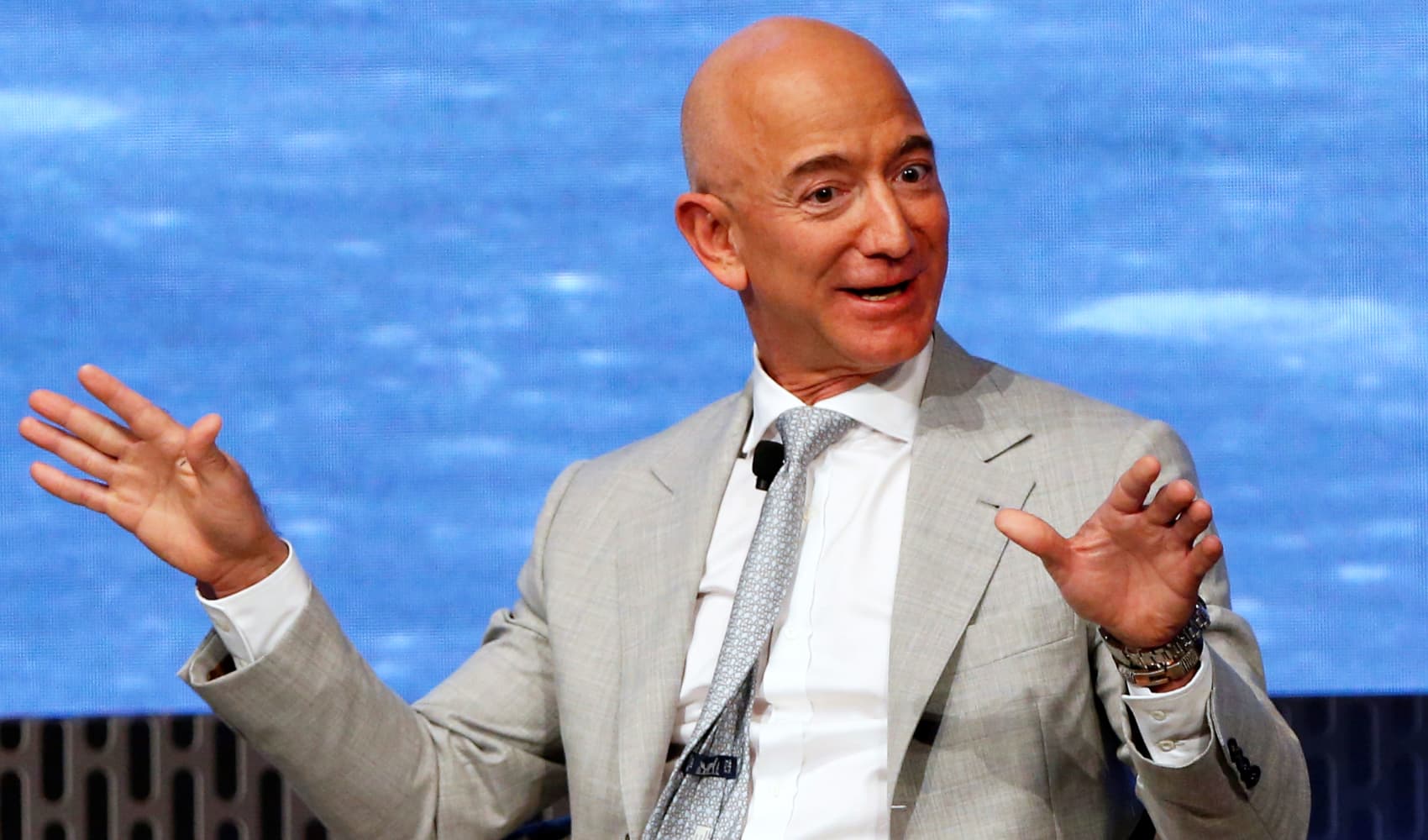
Today's column is brought to you by Mr. "Streetwise" himself (longtime Barron's readers will know the reference)...Michael Santoli!
I turned 50 not long ago and have been covering Wall Street for close to 30 years. The pull of curmudgeonhood is strong. This means walking a narrow line between two reflex reactions to whatever's happening: "We've seen all this before" on one side and "The kids are turning this world into something unrecognizable" on the other.
Reality is almost never as simple as either response. The trick is to listen for the timeless echoes in today's market behavior while remaining open to the possibility of genuinely new conditions. Maybe even the potential for progress.
Amateur traders getting excited over GameStop, AMC and cannabis plays in apparent disregard for daunting business fundamentals is not a unique feature of the current market moment. Sure, much has rightly been made of bored, homebound individuals wielding game-like trading apps offering zero commissions and a "Why not me?" attitude during the pandemic.
I've said before, the background music to this action is by Bob Dylan and Kris Kristofferson (old-guy song-lyric reference): "When you've got nothing you've got nothing to lose," and "Freedom's just another word for nothing left to lose."
But pure speculation on the hot ticker symbols is a lot closer to how Wall Street started than the quantitative, model-driven, passive-indexing mode of recent years. Ben Graham's "Security Analysis" in 1934 was revolutionary when it treated stocks as pieces of businesses that could be valued methodically and held for the long term.
Stocks at the time were used either purely for dividend income or as risky "greater fool" punts. The common "bucket shops" of the time merely let people wager on stock-price moves without ever trading real securities, akin to the bogus betting parlor in (old-guy movie reference) "The Sting."
Money Report
I recall the buying frenzy and audacious naked-shorting of shares in bankrupt steel-maker LTV in the early '90s and in broadband-network Level3 in the early 2000s, which the GameStop episode resembles. Some made money, many lost money, narratives were spun, aspersions were cast. The republic survived.
In the mid-'90s, when cable pioneer John Malone's flagship company Tele-Communications Inc. was known as TCI and traded under the ticker TCOMA, a report that he was about to make a splashy acquisition sent shares of a wholly separate company that traded under ticker TCI flying for a day or two. So, the recent symbol mix-ups of AMC and AMCX, and the ramp in Signal Advance shares after Elon Musk promoted the unrelated Signal app were not a novel misstep of the Reddit crowd.
I could go on. Tesla? The parabolic run feels like AOL in the 1990s – the company with a head start on the way to a glorious future. Crypto? Sure, gold in the late-'70s, but how about Red Hat going from 25 to 140 in 1999 on excitement over Linux as a free global software standard with only one or two available ways to play it in the stock market? Imperfect but not irrelevant.
SPACs? In the late-1920s, according to John Kenneth Galbreath's "The Great Crash 1929," "There was a worry that the country might be running out of common stocks: "One reason prices were so high, it was explained, was that there weren't enough to go around and, accordingly, they had acquired a 'scarcity value.'"
One solution: Holding companies to roll up hot sectors. "Inevitably, promoters organized some new companies merely to capitalize on the public interest in industries with a new and wide horizon and provide securities to sell," Galbraith writes. Hmmm.
The behaviors then – the lure of easy money, crowd psychology, opportunism – are constants and explain much of the market's present preoccupations.
Yet there's something more, and perhaps, bigger, that seems to be underway as well. Investors today are showing an extreme willingness to bestow capital on abstractions. Not merely intangible assets – brands, software – but ideas with no financial return stream attached.
The familiar "hot stock tip" aspect of the GameStop frenzy was unusual in also carrying the pretense of exacting principled vengeance on supposedly malign hedge-fund actors. Much has been made of the fact that GameStop and AMC movie theaters were brands with resonance to today's younger adults.
And whether representative of all the GameStop chasers or not, the need to be part of the latest viral wave and a claimed indifference to the prospect of losing a lot of money were part of the energy behind it. I don't believe for a minute that any novice investors buying GameStop are unfamiliar with the way viral memes reach a crescendo and immediately become stale. Yet they jumped in anyway.
Tesla has grown so huge relative to its present business operations, its market value exceeding $800 billion after selling a half-million cars last year, that most of that is a capitalized set of ideals and cult of personality. Tesla's perceived mission is, "We are creating the future as it must turn out." Investors who believe the world will incinerate soon if electric cars don't quickly become the norm will throw any multiple of revenue and cash flow at the one company that they believe can achieve this indispensable objective.
The widespread embrace by younger investors of ESG – environmental, social and governance characteristics – in directing their investments is a formalization of "capitalizing of abstractions," even if these attributes do have real-world effects.
Bitcoin: A set of rules and codes and protocols now being forced into a real-world role with future-defining atmospherics, a perhaps-elegant solution still in search of the problem is meant to solve. Yet it's worth in aggregate, almost exactly what Tesla is.
Much of the new retail-trading volume is happening through call options, low-cost, ephemeral bets on a share price moving higher. Simple enough but telling. The GameStop short attack was based in part on engineering a "gamma squeeze," buying enough calls to force market-makers to hedge by purchasing more shares in a self-reinforcing (though, we now see, temporary) spiral. Gamma is the rate of change in the rate of change in an option's price relative to the stock price. Pretty abstract.
SPACS, too: The appeal is the acquired company's ability to ignore past business results and promise a glorious future. The pitch decks of newly consummated SPAC deals invariably show spring-loaded growth in 2024 or 2025. Can't touch and feel it, but can you imagine it?
And have you heard about the big bucks being paid for limited-edition video clips of NBA highlights? Not a joke. Yet.
Please don't confuse this litany with a tired claim of a middle-aged seen-it-all character that "everything is a bubble." It's not at all clear this is reflective of a broad bubble, but it is continuous with how society's progress forces people either to embrace or reject inevitably greater levels of complexity and abstraction. Regimes do shift and value gets redefined.
Consider that our market now has two $1 trillion-plus companies that have never paid a dividend, perhaps never will, and are far too big to be acquired. Why are Amazon and Alphabet worth what they're worth? A prior generation would find it absurd, even if we never question it.
When I started covering markets, it was simply understood that technology companies traded at a discount to the overall market. They were seen as more cyclical, an offshoot of the electronics and machinery industries. That changed, for good. Both Byron Wien of Blackstone and the late economist Peter Bernstein have told poignant stories of how older investment pros were unable to adapt in the late '50s when stock dividend yields first went under Treasury yields – where they'd stay for the next 50 years.
A renowned money manager of the 1970s through the 1990s, a longtime member of the Barron's Roundtable, routinely decried the premium multiple placed on Coca-Cola, calling the product "colored, carbonated sugar water."
The global financial crisis also forced the public to reckon with the inherently abstract nature of our economic systems and relationships. Once it became apparent to more people that banks were mere piles of promises only as reliable as their least-reliable trading partner - and that the Fed effectively conjured money out of electrons - some had a hard time dealing with it.
Before dawn on a Monday in the heart of the 2008 crisis, as I waited to do a guest segment on a Big Three network morning show, the older, distinguished anchor said to me, "I was talking to some CEOs this weekend and they said we need to fix this Libor, the Libor is the thing that's broken." As if Libor were the head gasket on a '68 Mustang (old-guy car reference) rather than an interest rate fixed by an unreliable survey, one reflective of big banks' perceived solvency at a particular moment.
Some ran to the comfort of hard-money philosophy. Other's bought into the crypto fix.
Still others have concluded that, in a world where capital is not scarce but attention is, an idea can be worth an awful lot long before everyone is convinced it's "for real."
The entire lives of people under 25 have been a series of things their elders have said were pointless and incomprehensible – Snapchat, TikTok, Fortnite, the meme ecosystem – that they have seen grow to massive real-world value.
This curmudgeon-in-waiting is trying to be humble about telling them how it all will turn out.
And this curmudgeon-in-training is grateful for the excellent read. Thank you, Mike! -Kelly






